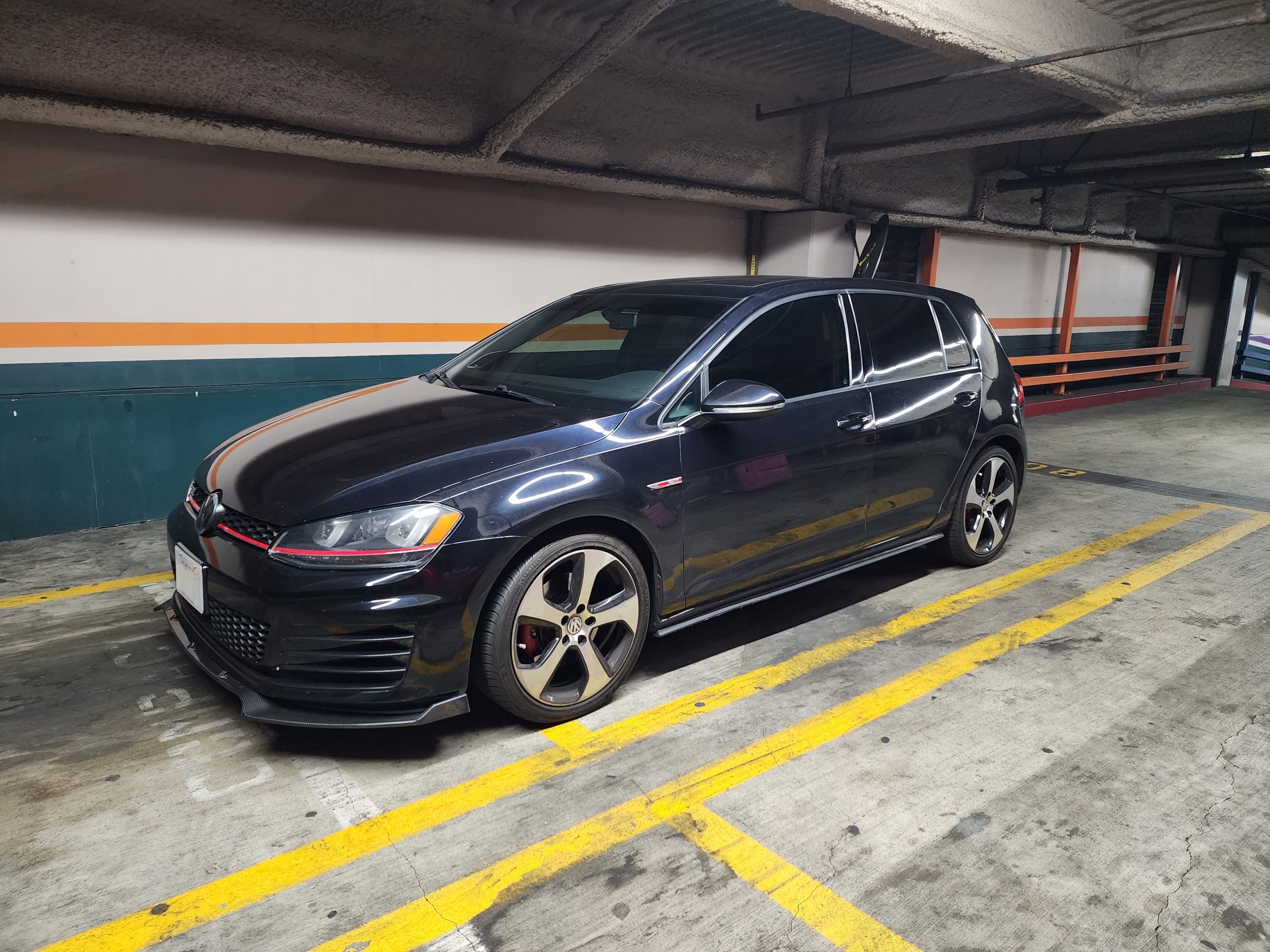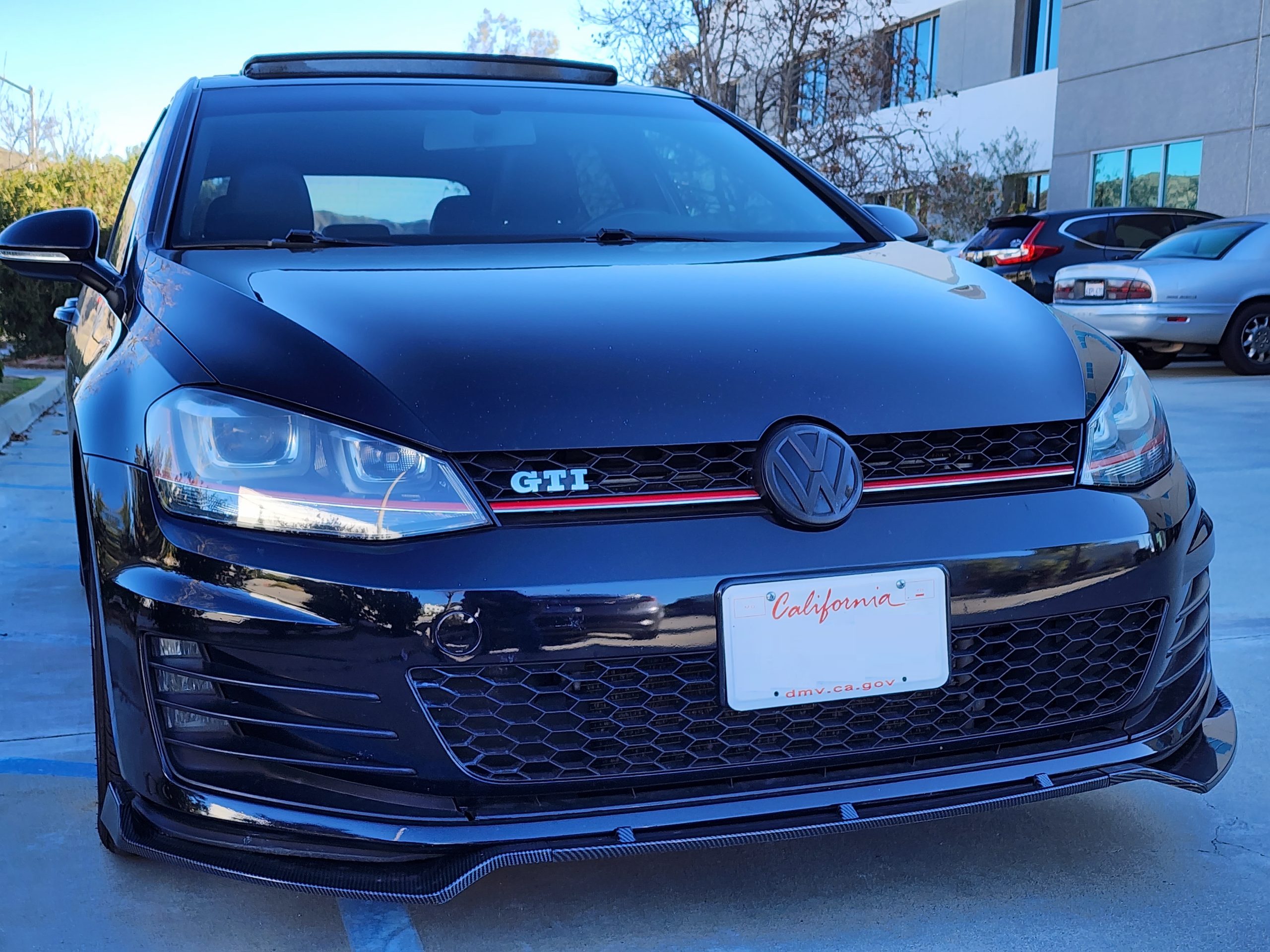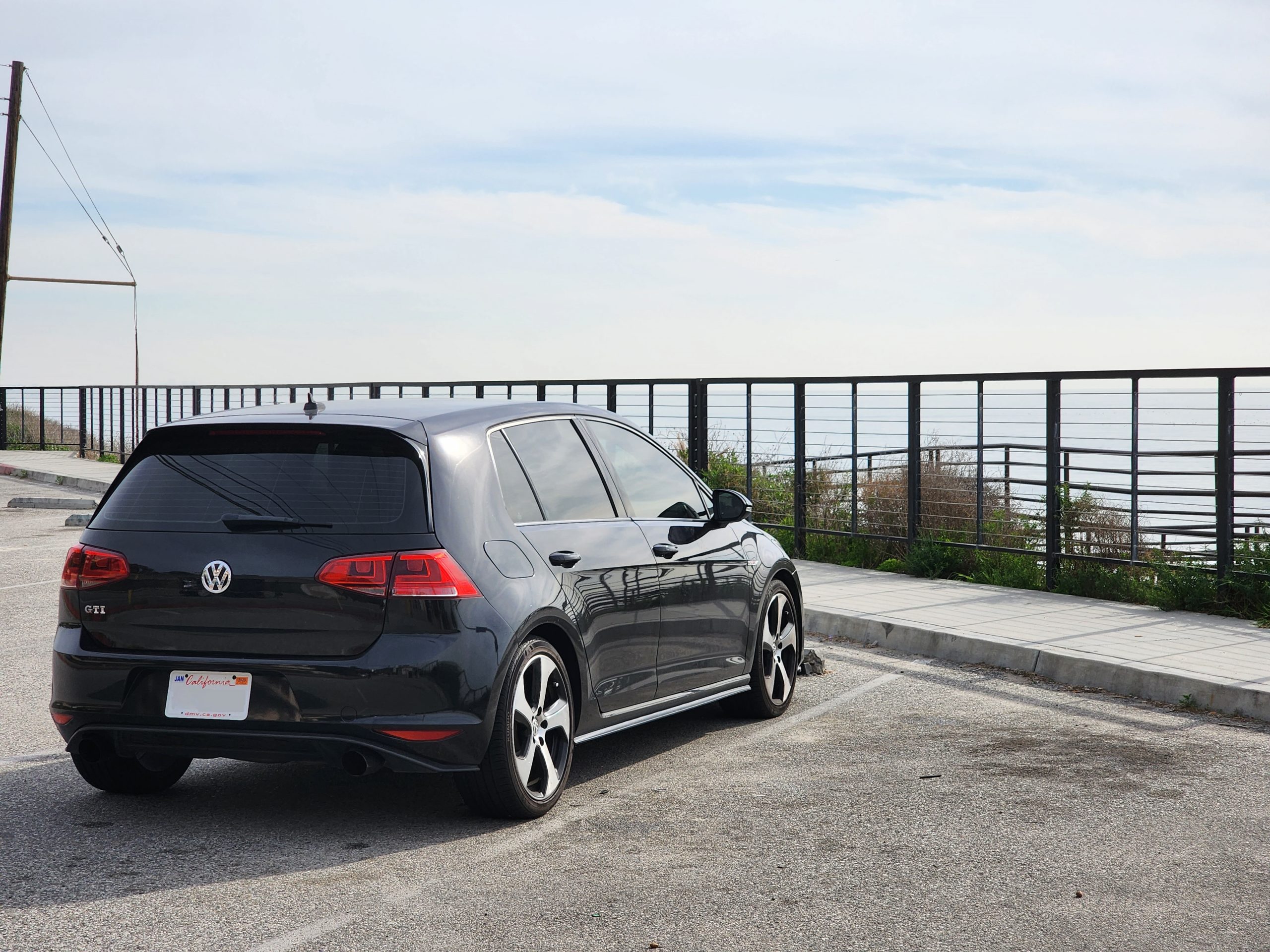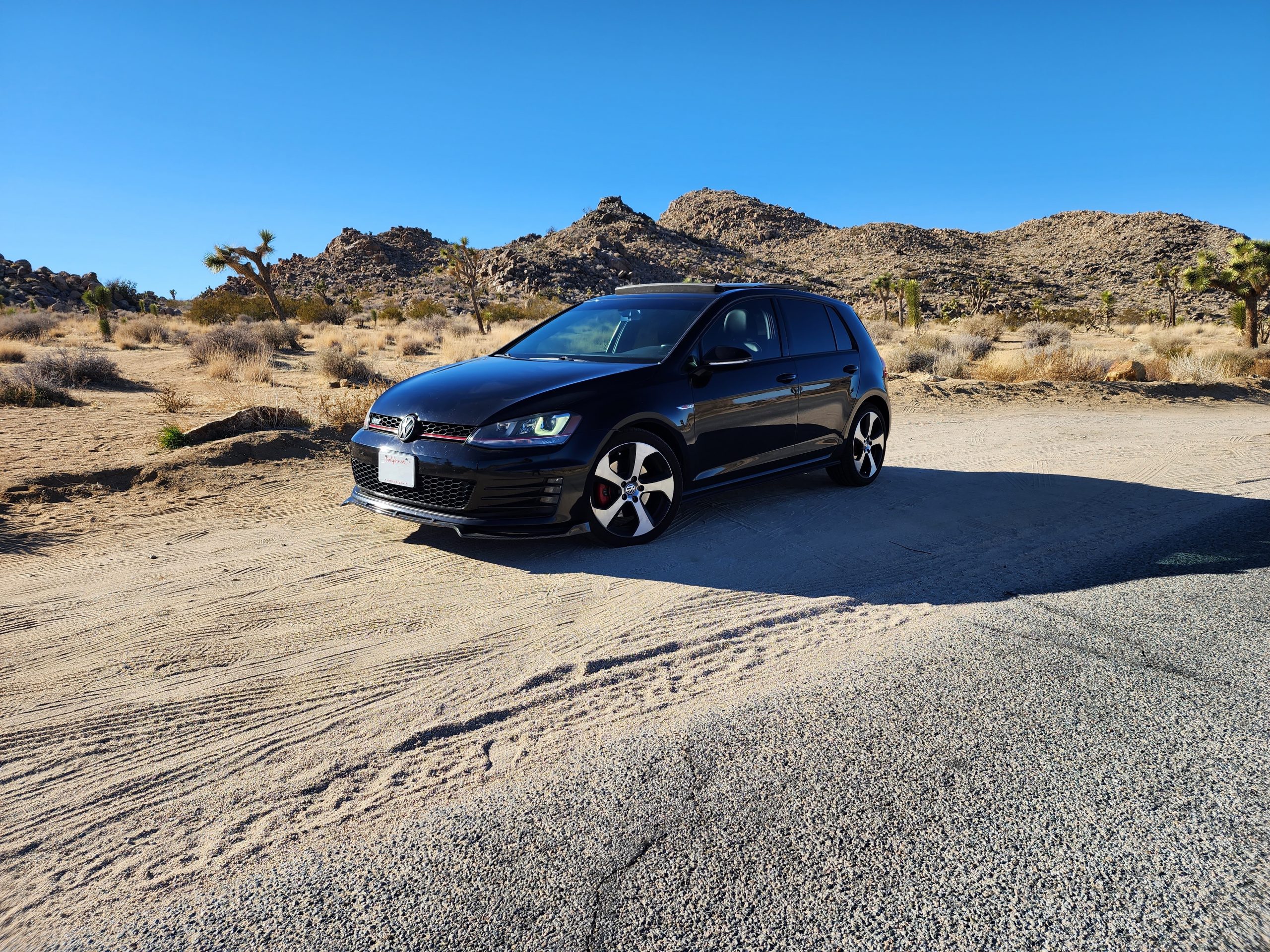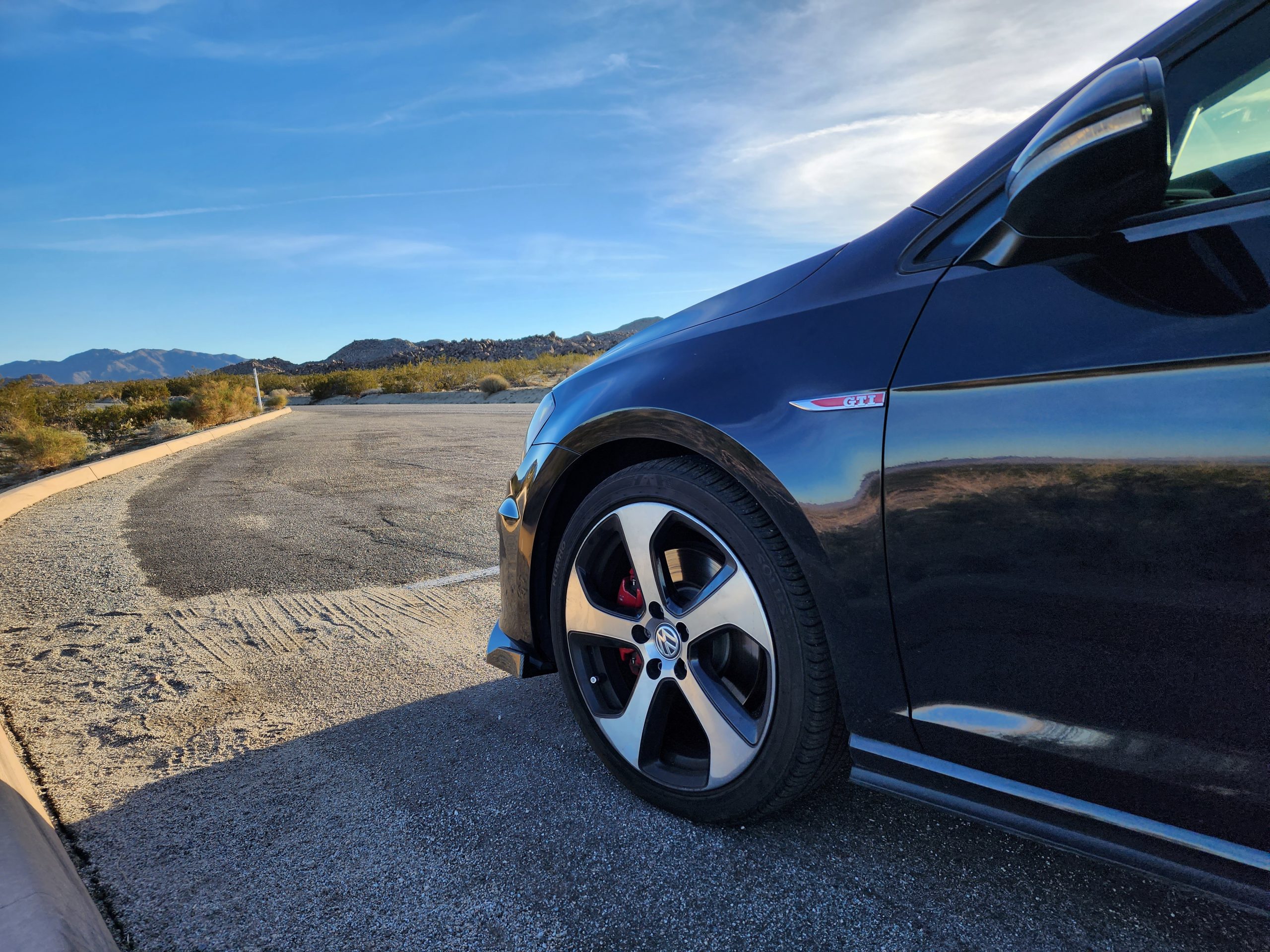If you’ve read my stories for long enough, you know that I have a soft spot for Volkswagens and the products of Volkswagen AG. Of my 21 cars, SUVs, buses, motorcycles, and trailers, five of my cars are Volkswagens. Add in my Audi TT and that’s six VAG products in the fleet. I’ve also tested a variety of Volkswagens in my professional career thus far. Yet, none of these vehicles have been Volkswagen’s famed Golf GTI. The vast majority of my personal Volkswagen fleet are diesels. And as far as performance goes, I’ve owned oddballs like the Touareg V10 TDI, the Phaeton, and the Passat W8. I’m sort of amazed that I’ve gone this long without so much touching a GTI. Now, I’ll admit that this car wasn’t my first choice on Turo. In fact, it wasn’t even on my list of ideas. I fully expected to be writing about a Chevrolet Corvette today or perhaps about some spicy version of the Dodge Challenger. Originally, I really wanted to drive something with three wheels and no roof. But, our plans changed and thus, so did the cars available to us. And while I really wanted to drive my first Corvette, I am not disappointed with what we did get. On Tuesday, Sheryl and I arrived in Ontario, California, where our adventure was set to begin. The GTI was not at the airport and could not be delivered there. Instead, we had to hop in an Uber to travel 17 minutes to a residence where the vehicle was parked. Riding in an Uber to pick up a rental car felt a little weird, but even with including the necessary Uber rides, the estimated total was about the same as renting a fun car from the airport.
The Car
When we arrived, the GTI was clean and ready to rock. Our steed for the next two nights and a little over two days was a 2016 Volkswagen Golf GTI SE. This Golf is only one in a long line of sporty hatches that enthusiasts around the world have enjoyed for decades. Volkswagen says that since the first Golf’s launch in 1974, about 2.5 million examples have found their way into American homes. For years, you could get your Golf in a variety of flavors from two-door hatches and all of the way up to diesel-powered wagons if you so desired. And if you wanted your practical wagon fast, you could have gotten your Golf in GTI, R32, or R specifications. Over the years, the Golf has earned a reputation for being a practical car with multiple versions offering cheap (to slightly less cheap) speed. The seventh-generation Golf graced American shores in 2015 and continued that tradition. You could get a Golf with two doors, four doors, as a wagon, as a lifted wagon, and even a van in Europe. Just as varied as the bodies were the powertrains, as you could get an MK7 with a gas or diesel engine paired to a DSG or manual transmission. Or, you could even go electric. And if you wanted some spice, the GTI and the R brought the power. Opting for the SE trim level like the one we rented nets you a standard panoramic sunroof, a Fender audio system, automatic headlights, rain-sensing wipers, and leather seats. If you like your GTIs plaid, you have to go down one trim to the base S. Power comes from a 2.0-liter turbocharged four that makes 210 HP and 258 lb-ft torque. Additional power came from the Performance Package, which added larger brakes, red badging, VAQ differential, and 10 more horses in the stable. Our SE unit did not have this option.
This particular example had about 92,000 miles and a few mods. We were informed of the vehicle’s cold air intake, diverter valve spacer, and custom exhaust, but it was otherwise as it left the factory. Looking around the vehicle, I found an aftermarket front spoiler as well as some Plasti-Dip on the front badge. While I never asked about the spoiler, I found it to be a clever addition. While out in California, I noticed that there are a lot of driveways with steep inclines, and these inclines are just waiting to eat the bumpers of nice cars. I see this spoiler as a sacrificial part that takes the hits so the bumper cover does not.
The GTI Strikes Fear Into Sheryl
Our adventure started when we slid into the GTI’s body-hugging buckets and Sheryl hit the start button, firing the GTI into life. She then moved the gear lever into Drive and punched the throttle. Sheryl’s used to driving my diesels and her Prius, so she expected a gradual take-off. Instead, the GTI jolted forward, threatening to spin its front tires as she steered her way out of the Turo Host’s neighborhood. I watched my wife’s face and her reaction was equal parts delight and terror. She didn’t even put the pedal down that far and the GTI responded with a rush of power. That, combined with the exhaust burble and the flat-bottom wheel, made us feel like the GTI was eager to stretch its legs.
Once we got out onto the main road, Sheryl opened up a little more. On a green light, she put the pedal down further, and the GTI responded by putting our heads into the headrests before chirping its front tires as it darted through the intersection. While not the most powerful vehicle ever piloted by Sheryl (that goes to a Ford E-350 with a 6.0-liter Power Stroke), this one struck fear into her. The GTI didn’t just accelerate hard, it felt like that’s all it wanted to. If anything, this GTI challenged you to go faster. Sheryl took it easy for our two-hour drive to our hotel in Los Angeles. She told me “this is a fast car that I do not own” and that she didn’t want to put it into a wall. As a passenger, the GTI felt a touch rougher than my Jetta TDIs at home. This, I think, was due to the sporty buckets and low-profile tires. The GTI feels like it trades some front seat comfort for performance, something that I got to experience the next day behind the wheel.
We arrived at the Millennium Biltmore Hotel earlier than expected. There, I found myself as enamored with the GTI’s design as I was with the beauty of our hotel. I adore Volkswagen’s attention to detail. See this tailgate? On first inspection, you don’t see a way to open the hatch or where the reverse camera could possibly be. That’s because the Volkswagen badge is your handle to pop the hatch! And when you put this car into reverse, the rear camera pops up and sticks out of the badge. In a time when so many cars have sharp, jagged designs, the GTI is clean and perhaps even timeless.
My Tour Of Southern California
Wednesday was our mini honeymoon. With just a day to show Sheryl some cool sights around the southern portion of the state, I charted a course that would bring us to the Joshua Tree National Park. Along the way, we’d be able to go through areas like Pasadena and pass through Palm Springs. And with some luck, we might even be able to catch a glimpse of the Salton Sea before heading back. Hopping into the driver seat was an experience in itself. The red-stitched leather bucket seat held me tight as I brushed my hands along the shape of the steering wheel. That seat is complemented by a leather-wrapped steering wheel. It too features leather stitching and its flat bottom is decorated with a glorious GTI badge. Some car interiors try to mimic the feeling of being in the cockpit of a fighter jet. That’s not the case here. The dash is angled toward the driver and its design looks like an evolution of the familiar dashboard that VW fans have seen for generations.
After I finished appreciating the interior, I hit the start button and the GTI roared into life. The hotel’s nine-story parking garage gave me my first taste of what was to come. Getting down each level required tight turns around the building’s inner structure and it took me almost no time to figure out that this hatch had sharp low-speed handling. The GTI rounded each corner with confidence, and between the corners, I giggled as the turbo spooled up before dumping pressure with that hiss some enthusiasts love to hear. For me, it was a bit silly, and I loved it. Reaching street level, I pulled out into traffic with a steady foot on the accelerator. To my initial surprise, the GTI responded by skipping its tires as traction control tried to rein in the situation. From there, the little hatch scooted towards the highway with haste. Entering that highway, I discovered another one of the GTI’s strong suits: its passing power. My diesels are decent at passing. I can drop a gear, put the pedal down, and confidently pass whatever is in my way. But this GTI? When you put the pedal down to pass, there’s just a brief moment of lag before it feels like you’re entering Warp. Before you know it, whatever you wanted to pass is back in your rearview mirror. Well, provided the car you’re trying to pass isn’t a dream car, then you’ll slow down…
After you complete the pass, the speedometer then continues to climb as you feel the GTI tugging on you like a large dog pulling on its leash. And for a brief moment, you want to see how far that speedometer could go before you remember that there are speed limits and you’re not in Mexico. There were a lot of opportunities like this on southern California’s highways. I’ve driven on many of America’s most notorious highways. I rarely reach the speed limit when driving around Washington D.C. and if you want to get somewhere on time in Chicago, leave even earlier than you think. But Los Angeles still holds the crown to me for how miserable traffic is. Often, traffic would sit still for up to a whole minute before racing up to 50 mph just to do it all over again. Or, traffic would stop and go for miles and hours. While this traffic did give plenty of opportunities to try out the GTI’s effortless passing power, Sheryl and I also found it to be a good car for that traffic. It’s small, nimble, and you don’t get tired out through the constant dance of throttle and braking.
Carving California’s Roads
Eventually, we freed ourselves from the shackles of Los Angeles traffic and cruised towards our destination: Joshua Tree. As the city evaporated away we found ourselves surrounded by desert sands, mountains, and endless curves. The GTI continued to be a bright spot as it carved canyon roads with poise. Steering was tight, as was the suspension, and as I rounded each curve I was confident in the car’s abilities and my own. There have been few times that I’ve felt as connected to the vehicle as I did here. I rounded each corner with a mile-wide smile on my face as the GTI and I become one. Every once in a while, I reminded myself that this wasn’t some low-slung sports car like my Saturn Sky. No, this is a practical hatchback! I should note that since this is someone’s car and not a tester, we never pushed it to its limits. We even made sure it didn’t go to redline. So the performance that I describe here? Yeah, that’s without thrashing the car like a total hooligan. Eventually, I stopped having fun blasting through California’s curves to take us through Joshua Tree National Park.
In some parts of the park, the speed limit was high enough for some scenic carving action, but it was mostly a peaceful retreat to a place that Sheryl has always wanted to go. I highly recommend visiting Joshua Tree. At first glance, it just seems like a bunch of rocks, plants, and sand, but there’s a whole ecosystem here to observe and enjoy. You’d think that deserts are desolate places without life, but look harder, there’s so much going on, here!
And if you aren’t so much into wildlife, there’s plenty of hiking, rock climbing, and stargazing to be had in Joshua Tree. Since Sheryl and I had just a day to enjoy everything, we spent just two hours here, essentially speedrunning the nearly 800,000-acre park.
A Few Downsides
At the end of our drive through Joshua Tree, we passed by the Salton Sea on the way through Palm Springs and back into Los Angeles. In total, we put about 400 miles on this car in one day, and a couple of things stood out to me as downsides. One major one for me was the driver seat. I’m a bigger person, and I sort of sat both in the seat and on top of it. The bolsters were definitely meant for a smaller person. They still did their job well, but 300 or so miles in and I started feeling some pain. That’s really to say that if you have a wide frame, a GTI is still a fun choice, but you might find yourself taking more frequent breaks on a road trip.
Another thing that bothered me was the road noise. Now, as I said before, this car wasn’t riding on the Continental tires that it came with from the factory. That alone could be a factor in that. However, the interior was easily pierced with the noises of the outside world and even wind noise was quite loud. This was weird because my Jetta SportWagen feels quieter than this was. Of course, this car had 92,000 miles, so perhaps there was some wear involved as well. Interior noise was a complaint from reviewers when these cars were new, so it seems to be what to expect. And while we’re talking about the car’s mileage, I should note that this vehicle already has cracks in its driver seat. Both of my Jetta SportWagen TDIs have the same problem in the same location, but one of those has 230,000 miles and the other 355,000 miles. I’ve seen cracking seats in a number of Volkswagens from the early to mid-2010s and I wonder what’s going on there.
A Fantastic All-Rounder
But despite all of that, I continue to marvel at this hatch. After carving it through canyons and curves, I became convinced that the best part about a GTI is the handling. This GTI could accelerate to 60 mph in 6.1 seconds. As Car And Driver wrote in 2015, that actually makes it a tad slower than some other GTIs. Heck, a Saturn Sky Red Line with an automatic transmission is nearly a second faster. But that’s not to say that the GTI is slow. When Motor Trend tested the MK7, the publication found it faster in a straight line than a Ford Focus ST and a Mazdaspeed3, but just behind a Subaru WRX and a Ford Mustang with a V6. Motor Trend went on to note that it was even a match for a more expensive Mini Hardtop John Cooper Works GP.
There’s magic to the GTI that some cheap sporty cars don’t have, and it’s that the GTI is a fantastic all-rounder. This is a car that can comfortably seat four people (five in a pinch) plus a trunk full of gear, and do it in such a fun manner that you’ll be smiling every mile. It’s also a small car so it’s good for city dwellers and we even managed 25 mpg despite canyon carving and LA traffic. Now that I’m at home and reflecting on the experience, it’s no wonder why Car and Driver’s testers had such statements like: I can see why a Golf has made Car and Driver’s 10Best list 15 years in a row and why the MK7 was dubbed the North American Car of the Year in 2015. Our own Patrick George sings the praises of this wonderful auto. “Buying anything more expensive is purely discretionary spending. This car is the sweet spot.” —Eric Tingwall “It does everything well—enough power, great handling, comfortable, and fantastic fuel economy.” —Jennifer Harrington
And now, Sheryl and I will join them. This is the car that has challenged Sheryl’s love for GM’s front-wheel-drive stormers and has me searching for a Volkswagen that isn’t a diesel. And now, with that delectable experience under my belt, I’m now seeking the power of a Golf R32 or Golf R. The Mk7 GTI is so much fun and offers so much bang for the buck that for the right one, I might consider selling some of my hooptie fleet! A R32 of either generation is going to be significantly slower and less punchy feeling unless it has a turbo or SC bolted on. Hell anything with a vr6 is slow unless it was a mk1 or mk2 just because of how light those cars are. A non-tuned Golf R isn’t going to feel that much different from a GTI in 90% of the cases either. With the added weight, the majority of drivers are buying the trim and not noticing anything else unless they’re really tracking the car. Build quality went down with the mk7+ due to location changes and de-contenting/cost cutting after Dieselgate. That’s where your interior noise and other complaints will really start accelerating. The sheer lack of content and features in cars after they got hit with those fines from their actions is amazing. Eg, a 2009 JSW (JSW with a TSI 2.0t motor instead of FSI and 2.0 instead of 1.8 or something else) is really a nice car. The mk6s were still okay but the mk4-5s had the best amount of real leather, interior features, build quality etc but also some classic problems – leaking rusty subframes, bushings, tensors etc. Still, try something prior to 2014 in the golf line compared to now. I let Ford try again with a brand new 2016 ST and had zero issues for the 6 years I drove it.

